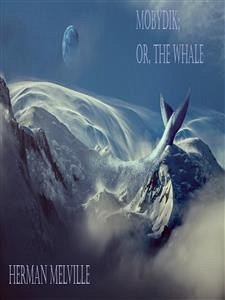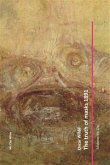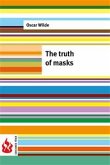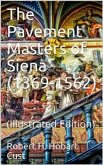Moby-Dick is the story of a macabre madman who follows an unholy battle against a vast and dangerous and unknown creature like the one in the sea. A contemporary commercial failure ended in the author's death in 1891, and its printing ran out in the twentieth century. DH Lawrence called it” the greatest sea book in its history to date." Jorge Luis Borges praised the style: "memorable phrases abound."Today it is considered one of the Great American novels and the leading work of American Romance. The opening line," Call Me Ismail " is one of the most defined opening places in Western literature. Ismail then describes the voyage of the whaling Pequod ordered by Captain Ahab. Moby Dick's revenge, the enigmatic white whale on a previous voyage, destroyed Ahab's ship and separated it from his knee. The history and realistic descriptions of whaling and the whale spill process, as well as the life on board which various crew members were looking for, were mixed with the discovery of class and social situation, good and evil, and that of God. Melville includes a wide variety of styles and literatures of planning, from booking and catalogues to Shakespearean stage recipes, soliloquies and aside. But the book can be seen as part of the author's lifelong meditation on America, rather than an encyclopedia of whaling and myth whales, rather than an adventure novel. Moby-Dick's characters address deeply on the nature of faith and perception. s ship and cut his leg off his knee. The history and realistic descriptions of whaling and the whale spill process, as well as the life on board which various crew members were looking for, were mixed with the discovery of class and social situation, good and evil, and that of God. Melville includes a wide variety of styles and literatures of planning, from booking and catalogues to Shakespearean stage recipes, soliloquies and aside. But the book can be seen as part of the author's lifelong meditation on America, rather than an encyclopedia of whaling and myth whales, rather than an adventure novel. Moby-Dick's characters address deeply on the nature of faith and perception. s ship and cut his leg off his knee. The history and realistic descriptions of whaling and the whale spill process, as well as the life on board which various crew members were looking for, were mixed with the discovery of class and social situation, good and evil, and that of God. Melville includes a wide variety of styles and literatures of planning, from booking and catalogues to Shakespearean stage recipes, soliloquies and aside. But the book can be seen as part of the author's lifelong meditation on America, rather than an encyclopedia of whaling and myth whales, rather than an adventure novel. Moby-Dick's characters address deeply on the nature of faith and perception. The history and realistic descriptions of whaling and the whale spill process, as well as the life on board between the various crew members, were mixed with the discovery of class and social status, goodness and evil, and God within. Melville includes a wide variety of styles and literatures of planning, from booking and catalogues to Shakespearean stage recipes, soliloquies and aside. But the book can be seen as part of the author's lifelong meditation on America, rather than an encyclopedia of whaling and myth whales, rather than an adventure novel. Moby-Dick's characters address deeply on the nature of faith and perception. The history and realistic descriptions of whaling and the whale spill process, as well as the life on board which various crew members were looking for, were mixed with the discovery of class and social situation, good and evil, and that of God. Melville includes a wide variety of styles and literatures of planning, from booking and catalogues to Shakespearean stage recipes, soliloquies and aside. But the book can be seen as part of the author's lifelong meditation on America, rather than an encyclopedia of whaling and myth whales, rather than an adventure novel. Moby-Dick's characters address deeply on the nature of faith and perception. good and evil and God's explanation. Melville has a wide range of styles and literary icons, from reservations and catalogues to Shakespearean stage recipes, soliloquies and aside. But the book can be seen as part of the author's lifelong meditation on America, rather than an encyclopedia of whaling and myth whales, rather than an adventure novel. Moby-Dick's characters address deeply on the nature of faith and perception. good and evil and God's explanation. Melville includes a wide variety of styles and literatures of planning, from booking and catalogues to Shakespearean stage recipes, soliloquies and aside. But the book can be seen as part of the author's lifelong meditation on America, rather than an encyclopedia of whaling and myth whales, rather than an adventure novel. Written with wonderfully redeeming humor, Moby-Dickede is a deep dictionary on the nature of character, belief, and perception. Lifelong meditation in America. Moby-Dick's characters address deeply on the nature of faith and perception. Lifelong meditation in America. Moby-Dick 'post with wonderful redeeming humour









